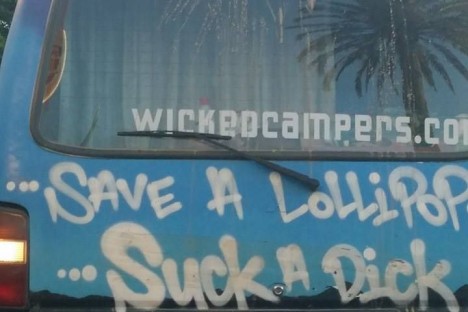Adland can thank Wicked Campers for getting the law involved in ad regulation
One advertiser who refused to bow to the the ad watchdog’s rulings has prompted the law to get involved in ad regulation for the first time in more than two decades. Simon Canning asks if this is the beginning of the end of self-regulation?
When Australia’s system of advertising self-regulation was set up more nearly two decades ago, advertisers were adamant the Ad Standards Bureau (ASB) had to be completely autonomous and that it could not, and should not, be supported by legislation. Adland, they said, needed to be able to police itself.
 But thanks to the behaviour of one car hire company popular with backpackers a key premise of the ASB has been shelved and advertisers using vehicles as a platform now face the very real threat of having their cars, trucks, vans and buses permanently parked.
But thanks to the behaviour of one car hire company popular with backpackers a key premise of the ASB has been shelved and advertisers using vehicles as a platform now face the very real threat of having their cars, trucks, vans and buses permanently parked.
The decision by the Queensland State Government to enact legislation that will allow it to deregister vehicles carrying marketing messages that have been banned by the ASB marks a significant shift for the watchdog – finally forced to rely the law, not self regulation, to enforce its rulings.
It is exactly what the system had been set up to avoid when then Australian Association of National Advertisers’ chairman (and founding chairman of the ASB) Robert Koltai helped launch the new watchdog after the collapse of the previous system.

